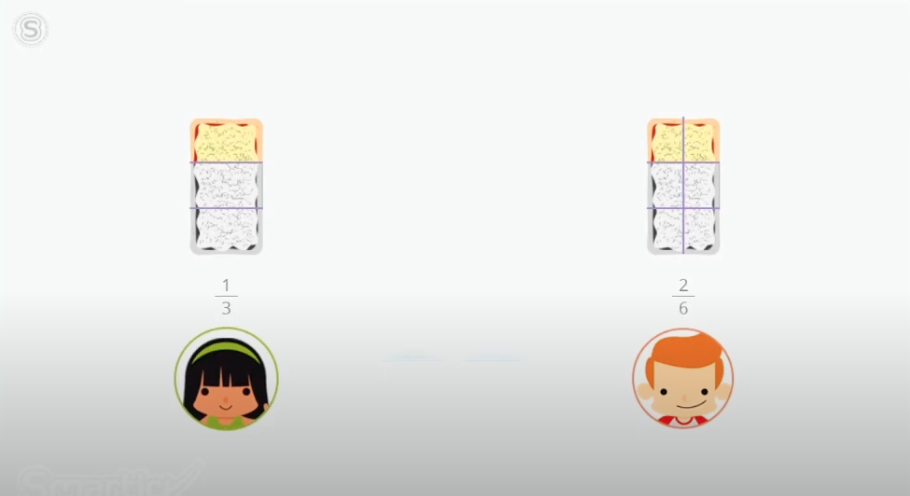Learn the Prime Numbers
With Ease
No more spending hours on rote memorization and repetitive worksheets. Smartick’s personalized math training method is designed to boost your child’s skills in a fraction of the time.
Learn Equivalent Fractions
With Ease
Welcome, young mathematicians, to a world of fractions and fascinating discoveries! In this guide, we will embark on an exciting journey to uncover the mystery of equivalent fractions. Get ready to understand what equivalent fractions are, learn how to find them, explore their importance, and discover real-life applications

No credit card required

No credit card required
Learn Equivalent Fractions with Smartick
What are Equivalent Fractions?
Finding Equivalent Fractions
The Importance of Understanding Equivalent Fractions
Real-life Examples of Equivalent Fractions
What are Equivalent Fractions?
Imagine you have a delicious pizza cut into 6 equal slices. If you take 2 of those slices, you have 2/6 of the pizza. But did you know that 2/6 is the same as 1/3? Equivalent fractions are fractions that may look different but represent the same amount or value. They are like different ways of describing the same portion of a whole. Understanding equivalent fractions helps us compare fractions, simplify them, and work with them more easily.

Finding Equivalent Fractions
- Multiplying or Dividing the Numerator and Denominator:
- Multiply or divide both the numerator (top number) and the denominator (bottom number) of a fraction by the same non-zero number.
- For example, to find an equivalent fraction for 2/3, you can multiply both the numerator and denominator by 2, resulting in 4/6.
Simplifying Equivalent Fractions:
- To simplify or reduce fractions, find the greatest common factor (GCF) of the numerator and denominator.
- Divide both the numerator and denominator by the GCF.
- For example, for the fraction 4/8, the GCF is 4. Dividing both the numerator and denominator by 4 simplifies the fraction to 1/2.
The Importance of Understanding Equivalent Fractions
Equivalent fractions are like secret codes that unlock the world of fractions. They help us compare fractions, add and subtract them, and solve real-world problems involving parts of a whole. Understanding equivalent fractions lays a strong foundation for working with fractions and prepares us for more advanced math concepts. From cooking recipes to measuring ingredients, understanding equivalent fractions allows us to confidently navigate the fraction-filled world around us.
Real-Life Examples of Equivalent Fractions
Now, let’s explore how equivalent fractions apply to real-life situations:
Sharing Treats: Imagine you have a box of cookies, and you want to share them equally among your friends. If you divide the box into 12 equal parts and take 3 parts, you have 3/12 of the cookies. But that’s equivalent to 1/4 of the whole box, meaning you get one-fourth of the cookies.
Time Management: Consider a clock with 60 minutes. If you spend 30 minutes playing and divide the time equally into 5-minute intervals, you’ve spent 6 intervals or 6/12 of an hour. Simplifying the fraction gives you 1/2 hour, which means you’ve spent half an hour playing.
Recipe Adjustments: When cooking, you may need to adjust a recipe to make more or less of a dish. If a recipe calls for 2/3 cup of flour, and you want to double the recipe, you’ll need 4/3 cups of flour. Simplifying the fraction shows that you need 1 and 1/3 cups of flour.
See How Smartick Helps Your Kids to Learn Equivalent Fractions
Smartick’s built-in gamification makes math feel fun. Making learning fun helps kids avoid burnout. Plus, they’ll develop stronger habits and a broader love of learning.


